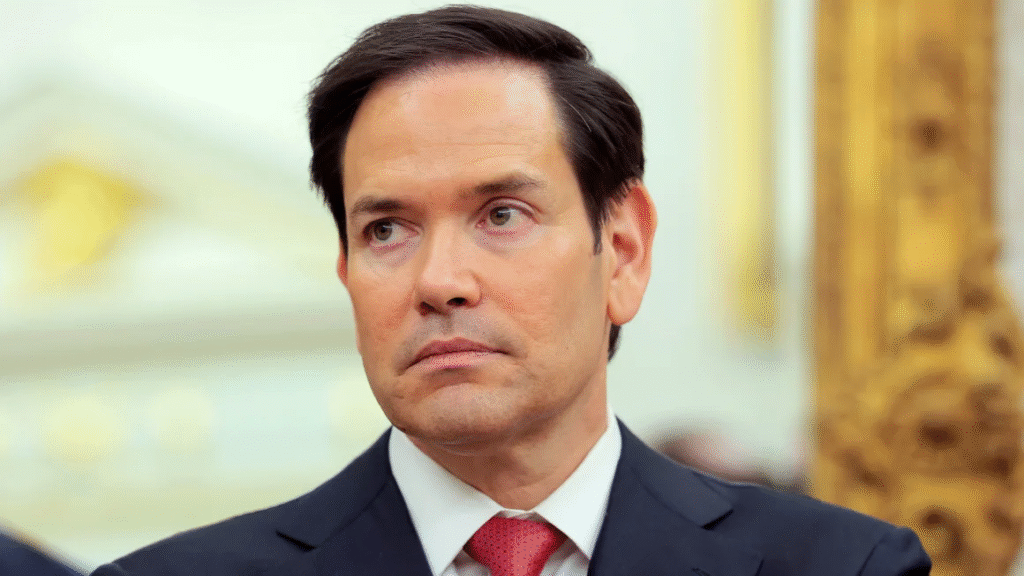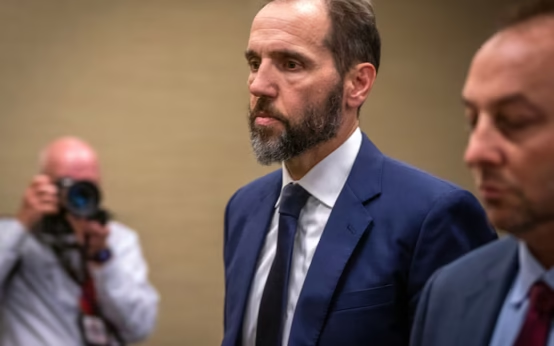Trump Administration Targets Chinese Student Visas
On May 29, 2025, Secretary of State Marco Rubio announced the U.S. will “aggressively revoke” visas for Chinese students. This move escalates tensions with Beijing.

It targets students with ties to the Chinese Communist Party (CCP) or those in “critical fields.” The decision follows a broader crackdown on international students. It risks straining U.S.-China relations further.
Background of the Decision
U.S.-China relations have been tense for years. The Trump administration views China as a strategic rival. Concerns about espionage and intellectual property theft fuel suspicion.
During Trump’s first term, visas for Chinese students in sensitive fields were revoked. Fields like aerospace and semiconductors were targeted. The new policy expands this approach. It reflects fears that Beijing exploits U.S. academic openness.
Details of the Visa Crackdown
Rubio’s announcement lacks specifics on scale. Visas will be revoked for students linked to the CCP or studying critical fields.
The State Department and Homeland Security will collaborate. Future visa applications from China and Hong Kong face stricter scrutiny. Social media vetting for applicants will also expand. This follows a temporary halt on new student visa interviews. The policy aims to protect national security.
Impact on Chinese Students
About 277,000 Chinese students study in the U.S. They make up a quarter of international students. Many now face uncertainty and fear.
Students in fields like engineering or AI are most at risk. Some may be forced to transfer or leave. The sudden policy shift disrupts their education and plans. Students worry about being unfairly targeted. A student from Guangzhou said rules keep changing, complicating applications.
Tensions with Beijing
Beijing called the decision “unreasonable” and “discriminatory.” Foreign Ministry spokesperson Mao Ning criticized it as a pretext using national security.
China lodged protests with Washington. The move risks derailing recent trade truce efforts. A 90-day tariff suspension had eased tensions. Now, student visas reignite conflict. Beijing vows to protect its students’ rights. Experts warn this could deepen the U.S.-China “cold war.”
Broader Implications for U.S. Universities
U.S. universities rely on international students’ tuition. Chinese students are a major revenue source. Smaller colleges face financial strain from visa revocations.
The policy could harm America’s scientific leadership. Critics argue it unfairly punishes students. Researcher Yaqiu Wang called it “deeply concerning.” It may push students to study in countries like the UK or Singapore. Harvard’s legal fight against similar restrictions highlights resistance.
Trump administration
The Trump administration’s decision to revoke Chinese student visas marks a bold escalation in U.S.-China tensions. Announced by Secretary of State Marco Rubio on May 29, 2025, the policy targets students with ties to the Chinese Communist Party or those studying in critical fields like semiconductors and aerospace.
This move builds on earlier actions from Trump’s first term, where thousands of graduate students faced visa cancellations over espionage concerns. The administration now plans to intensify scrutiny, including expanded social media vetting, and has paused new student visa interviews, sowing uncertainty for applicants.
The backdrop is a fraught U.S.-China relationship, strained by trade disputes and national security fears. The U.S. accuses Beijing of exploiting academic openness for technology transfers and espionage.
This policy follows a temporary trade truce, with a 90-day tariff suspension, but it risks unraveling fragile progress. Beijing’s response was swift, condemning the move as “political” and vowing to protect its students. The silence from China’s state media suggests the announcement caught them off guard.
For the 277,000 Chinese students in the U.S., the impact is profound. Many fear sudden deportation or inability to continue their studies, especially in high-tech fields. Students like those advised by a Guangzhou consultancy are now exploring options in countries like England or Singapore due to unpredictable U.S. policies.
Universities, already hit by funding cuts, face financial losses as international students, who often pay full tuition, may dwindle. Critics, including researchers like Yaqiu Wang, warn that blanket bans could undermine U.S. innovation and global academic standing.
This crackdown also fits into Trump’s broader assault on higher education, with actions like attempting to bar international students from Harvard over alleged antisemitism.
As tensions flare, the visa revocations threaten not just students but the delicate balance of U.S.-China academic and diplomatic ties.


 How Masked Agitators Are Hijacking L.A.’s Immigration Protests
How Masked Agitators Are Hijacking L.A.’s Immigration Protests  Is U.S. Visa Inadmissibility Based on Communist Party Affiliation?
Is U.S. Visa Inadmissibility Based on Communist Party Affiliation?  Musk Steps Down from DOGE Role
Musk Steps Down from DOGE Role  White House’s Response to Selena Gomez’s Video
White House’s Response to Selena Gomez’s Video  DOJ Fires Prosecutors Involved in Trump Investigations
DOJ Fires Prosecutors Involved in Trump Investigations  Donald Trump plans to withdraw 20000 US troops from Europe
Donald Trump plans to withdraw 20000 US troops from Europe